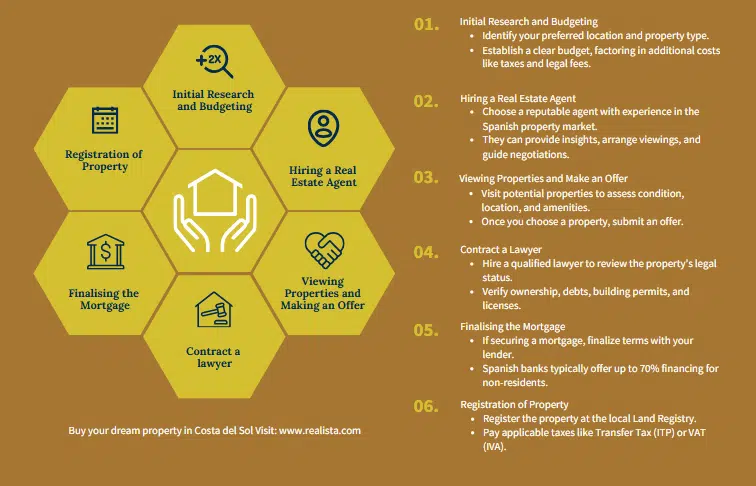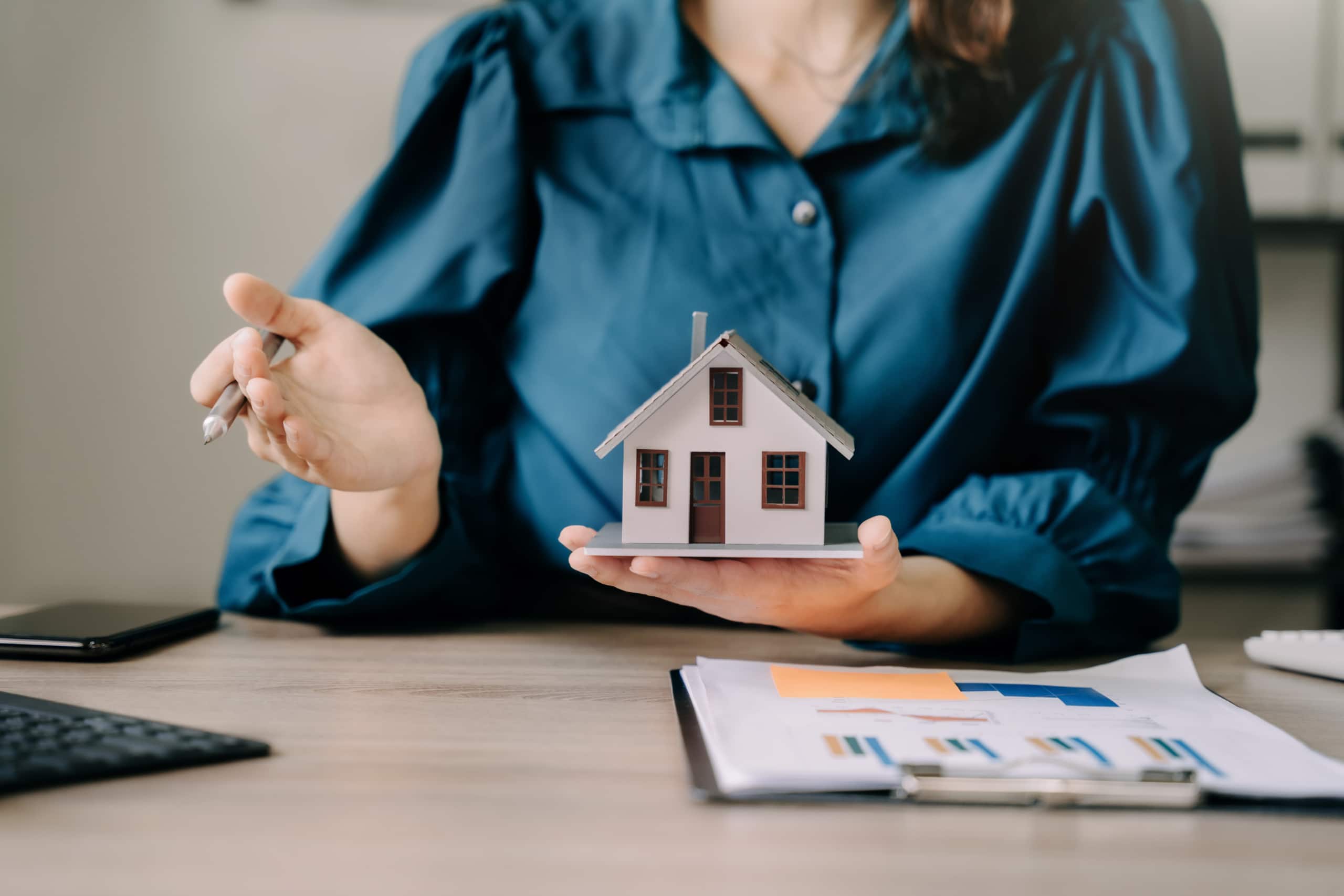looking to buy a home?
Submit this Form and Benefit from our 25 Years' Experience & Strong Local Network.As is the case in all countries, Spain has a unique procedure for buying property. The process will probably be unfamiliar to you and involve professionals who may not play a part in property transactions in your home country. It’s therefore important to take advice from your real estate agent and lawyer, both used to the Spanish way of doing things.
Process of Buying Property in Spain
But to give you an idea of what to expect when you’re buying a property in Spain, this article provides an overview of the main steps involved in the process. From the initial property searches to the key handover when you become the owner of your new home in Spain.

First Steps
- Set your budget – do some careful maths and work out your budget. Don’t forget to add between 10 and 12% for taxes and fees.
- Pinpoint your chosen area – decide where you’d like to live in Spain. You may have a good idea already from previous research or visits or maybe need some pointers. Ask your real estate agent for advice on which places offer what you’re looking for.
- Prepare a must-have list – once you have your location and price target, make a list of what you want in the property. Bear in mind that you may not find a home that ticks all your boxes, but with the help of a property finder, you should be able to source one that gives you almost everything.
- Use a property finder – make life easier for yourself and save time and stress by contracting the services of a property finder. Let them source homes that fit into your requirements and budget as well as having the right location.
- Survey – depending on the state and/or age of the property you’re buying, you might want to get a survey. The survey findings may affect how much you want to pay, for example, to compensate if the property requires extensive refurbishment.
- Make an offer – when you find your ideal home, you might want to make an offer on the price. Most property owners are open to offers, although they’ll expect it to be a serious one reflecting several factors, including the current market, state of the property, whether you’re a cash buyer, etc. Ask your real estate agent for advice on negotiating the property price.
Next Steps
Once your offer has been accepted, the purchase process starts. At this stage of the procedure, you should do the following:
- Contract a lawyer – do this before you pay a deposit or sign any legally binding paperwork on the property. Instruct your lawyer to carry out basic legal checks on the property.
- Sign the pre-purchase contract – this document secures the property for you and outlines the terms and conditions of the transaction, including the deadline for purchase. The contract is signed by the buyer and the seller (or their representatives) and the buyer usually pays 10% of the purchase price on signing. If the house is being sold with fixtures and fittings and/or furniture, the contract should have an inventory attached, which is signed by both parties.
- Mortgage application – if you need a mortgage to buy the property, now is the time to start the application process. Ask your bank how long the application will take to approve and make sure the pre-purchase contract factors this timeline into the purchase.
Legalities on the House
Meanwhile, your lawyer will carry out a comprehensive checklist on the property to make sure it’s 100% legal. These checks include:
- Property register checks – to ensure the property description and legal owner match, and to find out if there are any charges or encumbrances.
- Planning checks – to ensure the property was built with the appropriate building licence and planning permissions. Or in the case of an off-plan property, to make sure the developer has all paperwork in order.
- Tax checks – to ensure the current owners are up-to-date on payment of all taxes related to the property.
- Community checks – to ensure the property is up-to-date with payments to the community of owners.
Final steps
Sometime after you sign the pre-purchase contract – usually between two to eight weeks – it’s time to complete.
- Sign the deeds – both parties sign the title deeds in the presence of a Notary Public. Your lawyer should check the deeds and make sure everything is in order, as well as provide you with a verbal translation of their contents.
- Payment – in tandem with signing the deeds, you make the final payment for the property. The usual method of payment is through a banker’s draft.
- Key handover – once the title deeds have been signed and final payment made, you receive the keys to your new home.
- Registration – your lawyer or real estate agent will take care of registering the property in your name at the nearest Property Registry (Registro de la Propiedad).
- Payment of taxes – your lawyer or real estate agent will also pay the appropriate taxes and fees on your behalf.
- Utility supplies – your lawyer or real estate agent will arrange for the connection of utility supplies or the transfer of utility contracts to your name. They will also set up direct debit with your bank so that bills are paid automatically.
After-sales Services
You may require extra services after the purchase, including:
- Renovation and refurbishment services – good real estate agents should be able to recommend professionals to carry out the required improvements on the property.
- Removal services – you may require recommendations for a company to move your furniture and belongings to Spain. Ask your real estate agency for advice.
Conclusion
Buying property in Spain can be a smooth experience when you understand the process and take the right steps. From setting your budget and finding your ideal home to completing the legalities, each stage requires careful attention. By working with experienced professionals such as real estate agents and lawyers, you can ensure that the process runs smoothly.
If you’re considering purchasing property in Spain, whether for investment, relocation, or a holiday home, seeking expert guidance is important. Our team is here to help you every step of the way.
Contact us today to own your dream property in Costa del Sol.



